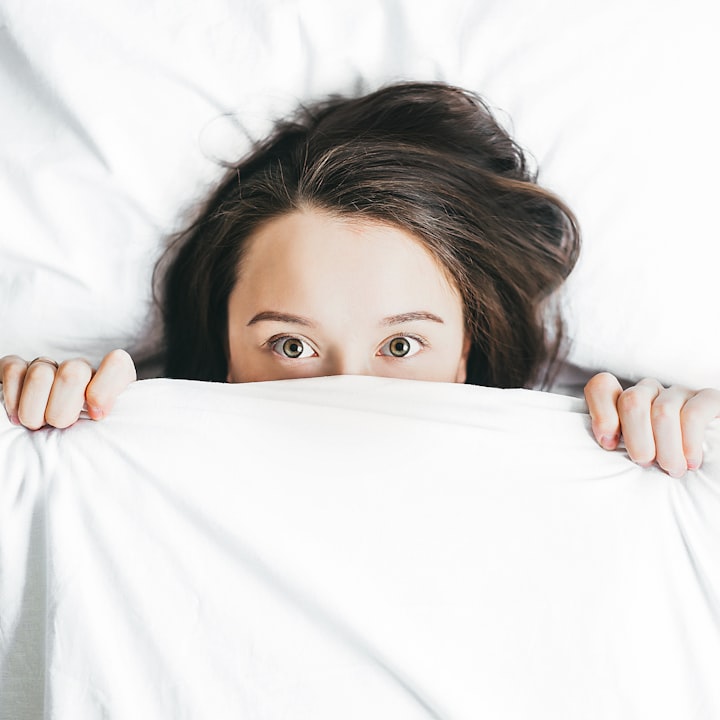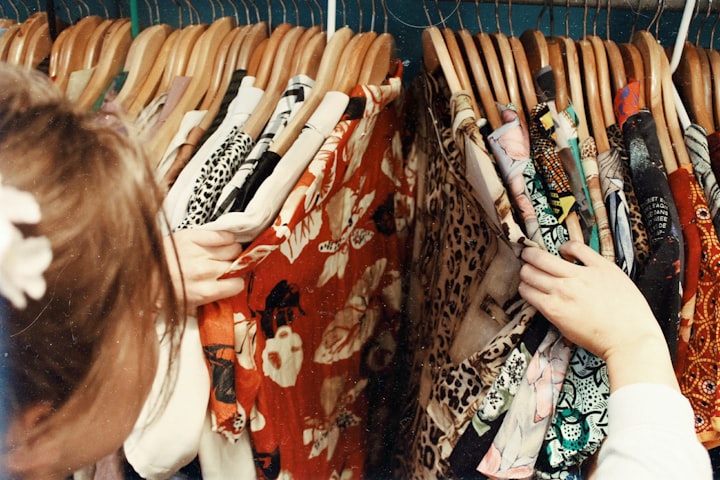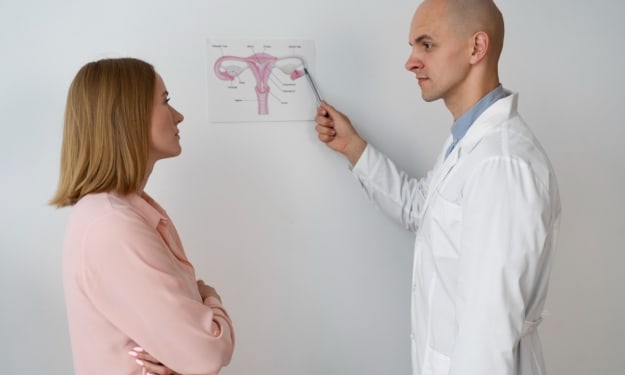SMART Sleep
How I'm planning to improve the quality of my sleep (and my life) this coming year

I didn't have great sleep habits before the Pandemic and a year of remote work, staying up late to binge-watch and doing double duty as a single Mom and school tutor just made things worse.
Then, on top of all my other stressors, I decided to return to school. Which just added "study" and "assignments" to my to-do list.
My sleep got more broken and my fatigue levels started climbing. I was waking up at 2 am, my mind racing, worrying about money and how I was going to do schoolwork on top of my regular job and my own writing. Some nights, I'd lie awake and brood, with my mind turning over and over, for hours. I knew the lack of sleep was becoming a problem, and I knew I had to address it. I also knew I'd been here before.
My Sleep Apnea Legacy
One of my Mum's legacies to me and my brother was sleep apnea.
Sleep apnea is caused by a obstruction of the throat -- the muscles relax and block airflow -- which causes breathing to stop and start. The reason it's dangerous is because blood oxygen levels can fall to low levels. The main symptoms include loud snoring, breathing that stops momentarily and then re-starts and waking up feeling tired, even after a full night's rest.
Sleep has five stages: 1 - Falling asleep, 2 - Deep relaxation but light sleep, 3- Transition to Deep Sleep, 4- Deep Sleep, 5-Dream Sleep.
The bane of sleep apnea is that just as you reach stage two and are lightly asleep, your snoring wakes you up. You don't get to progress to the deeper, restful stages of sleep. (The full cycle lasts about 45 minutes and humans move repeatedly through the sleep cycle all night.)
Sleep apnea doesn't just cause a lack of restful sleep and daytime fatigue. Research links it to high blood pressure, heart disease, cancer, Type 2 diabetes and liver problems, as well high cholesterol and blood sugar levels. Sleep apnea can also trigger a nighttime heart attack or stroke.
Mum started to snore more and more heavily as she got older, and by the time she was in her 60s, it was clear she had sleep apnea. My brother was also starting to snore loudly by his 50s. His girlfriend told me that she had to sleep in another room. Then my partner started to complain about my snoring and told me he sometimes had to sleep on the sofa. (Another outcome of sleep apnea is sleep-deprived partners).
Risk factors for sleep apnea include being overweight or obese, smoking, using alcohol, sedative or tranquilizers, and some medical conditions.
Mum died of breast cancer before reaching 70. It's hard to know for certain if her sleep apnea contributed to getting cancer. I miss Mum every day even after all these years. She never got to meet my daughter. I want to take any steps I can to make sure I'll be around for my daughter for a long long time. So I needed to address the sleep apnea and improve the quality of my rest.
What is having sleep apnea like?
Imagine waking up feeling still tired, and then having to start and move through the whole day, not ever feeling completely awake or alert. Drinking a cup of coffee in the morning on the way to work, and grabbing more coffees during the day on breaks to keep pumping up the caffeine levels to focus on work. Yawning by 3 pm, and can't wait for 5 o'clock. Head to yoga after work, which boosts energy levels and is calming, but then home and making dinner, feeling tired again. Many nights, ready to collapse into bed by 7.30 or 8, and sleeping by 9 pm, only to wake several times in the night and then finally being rudely yanked from sleep by the alarm at 6.30 am to start the whole routine over again.
Dealing with sleep apnea
I don't smoke and eat a good diet. I maintain a healthy weight and get plenty of exercise. I have the occasional glass of wine. I don't have the obvious risk factors, apart from a family history and getting older. It's just bad luck really, but still something I have to live with.
At my partner's repeated urging, I finally went to a sleep disorders practice just before the pandemic started. The common treatment for sleep apnea is to use a CPAP machine, which you strap to your nose at night and it pushes air into your throat when you stop breathing to trigger a new breath. I really didn't want to sleep attached to a machine, plus I couldn't travel with it.
Luckily, the practice I went to uses new technology to design and fit a custom mouthguard that keeps your throat open while you sleep. They took a scan of my head and neck, took plaster molds of my teeth and fitted me with a customized mouthguard.
I was skeptical until I had a full night's sleep, with no disturbances for the first time in years, and my dreams returned.
The REM (or Rapid Eye Movement) sleep cycle is when we dream, and it's the one most disrupted by restless sleep. REM sleep is actually the fifth and last stage in the sleep cycle, and the previous four non-REM stages need to happen successfully for us to reach REM sleep.
But I'd taken a "one-and-done" attitude. I'd rectified the sleep apnea, but I hadn't really changed my poor sleep habits. After spending all day on the computer writing and studying, I'll reward myself after my daughter goes to bed with an episode of one of my favorite series (which easily turns into two or three). Most nights, I'm getting to bed at 10.30 or 11 pm and then I have to get up at 6.30 to get my daughter ready for school. Even with the new mouthguard, I'm still not getting enough sleep.
A technology fix alone wasn't solving my problem. I needed to find a way to improve my habits.
Sleep Research
Then one day, an editor assigned me an article on ways to get better sleep.
Doing the research was an eye-opener! There are many ways to make sure you get better rest, and some of them you do during the day, such as exercising or eating more fiber. Here's one bit of wisdom I learned: don't drink coffee after 11 am or noon. The effects of caffeine are active up to six hours after consuming, and can keep you awake if still in your system. So keep coffee to breakfast or second breakfast (for Hobbits). Several factors really help you fall asleep and stay asleep, such as taking a hot shower in the evening, having a glass of warm milk, making sure your bed is comfortable and your bedroom is dark and quiet.
I felt encouraged that I could find a way to lick my bad sleep habits and start getting a better night's sleep. After all, I'd dealt with the hardest issue already and I use my mouthguard routinely.
I learned from doing sleep research that it's important to have a pre-bedtime ritual. This way, your body becomes trained to recognize when it's time to slow down and get ready to sleep. Helpful rituals include a warm shower, warm milk, relaxing yoga, essential oils and meditation.
Then the Vocal Challenge appeared. It was just the push I needed to overhaul my not-so-great sleep habits.
SMART Goals
I decided to get SMART about setting better sleep goals. SMART is a technique from business management that helps you stick to making change or reaching a goal. SMART stands for Specific, Measurable, Acheivable, Relevant and Time-Based.
My SMART Sleep Goals
1) Go for a 30-45 minute walk every day
Being active and fit really impacts the quality of your sleep in a positive way, even if you exercise early in the day. I already do this most days so it's easy to keep this goal.
2) Stop using screens by 8 pm
The blue light from screens stimulate your brain and stop the body's melatonin production (the hormone that makes you sleepy) which results in feeling more alert. So it's harder to fall asleep and you don't get good quality rest because you've disrupted the natural biological processes in your brain. So no more late night binge watching!
3) Develop a bedtime ritual
I'll start a regular 10-minute bedtime ritual with lavender oil and an inverted yoga posture, as I know from experience that these things calm and relax me.
4) Read only paper books before bed (preferably fiction)
I borrowed this idea from Tim Ferriss, the author of The Four Hour Body. He suggests only reading fiction before bed so your brain isn't overstimulated. Luckily, I love to read and it helps me relax and fall asleep at night. I also have a large stack of TBR non-digital books, so this helps me achieve another New Year's Resolution to read more and watch less this year.
5) Fall asleep between 9.30 and 10 pm
I need about 8 hours of sleep, and if I can fall asleep by 10 pm, I'll waken naturally by 6 am. If I can sleep by 9.30 pm, I'll wake at 5.30 am.
6) Keep a sleep journal for 120 days
It takes roughly 60 days to develop a new habit, so I'll keep my sleep journal for 120 days to make sure my new habits are sticking. I'll mark each day what time I went to bed and got up, the quality of my sleep and if I kept to my sleep ritual. The act of writing down goals and acheivements also helps me stick to them.
Six steps. No one step is too hard or off putting. Pretty straight forward, hopefully, and easier to keep to them.
Are my goals really SMART?
Specific: Each goal is clearly outlined and detailed
Measurable: I have placed numerical values on my goals, ie. what time I stop using screens, how long my sleep ritual goes for and how many hours I aim to sleep each night and will track my daily goals and accomplishments in a sleep journal
Achievable: My list is short and each goal is not difficult in itself
Relevant: Each goal feeds into the overall plan which is improving the quality of my rest
Time-based: I'll run my new program for 120 days, giving myself extra time to adapt to the changes
Some business writers argue that SMART goals should be SMARTER goals. The E stands for Evaluated and the R for Reviewed. So this time next year, I will be evaluating and reviewing how my sleep goals performed in 2022 and how both my sleep -- and my life -- improve this year.
About the Creator
Liz Sinclair
Amateur historian who loves travel and lives in Asia. I write 'what-if' historical stories, speculative fiction, travel essays and haiku.
Twitter: @LizinBali. LinkedIn: sinclairliz






Comments
There are no comments for this story
Be the first to respond and start the conversation.